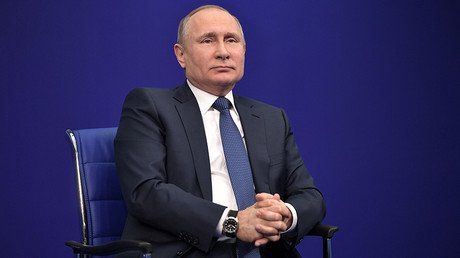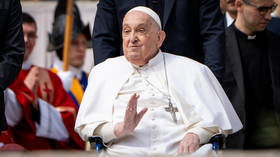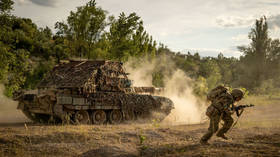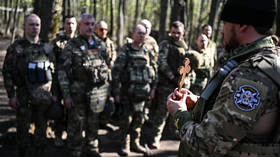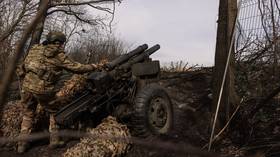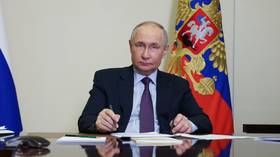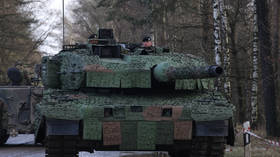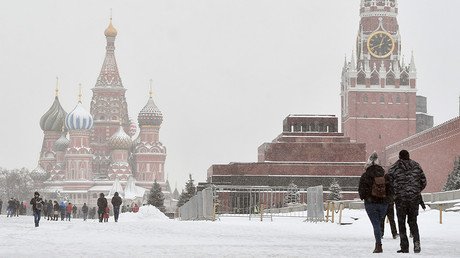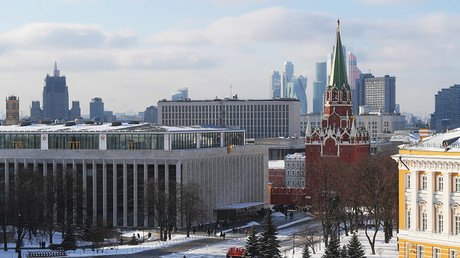US Treasury’s 'Kremlin List' proves ignorance is bliss for Washington
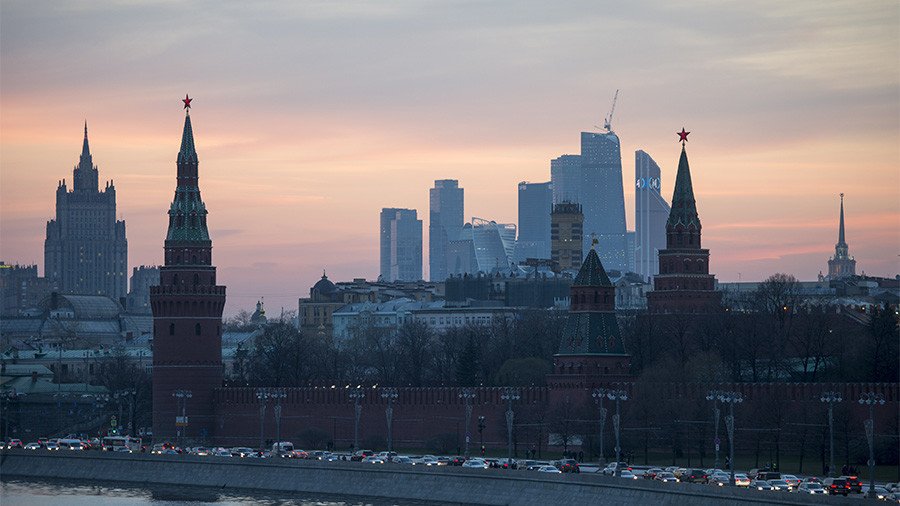
Events of the past few years have raised suspicions that the US government has access to little or no actual expertise on Russia. Tuesday’s long-awaited list of key Russian political and business figures served to prove the point.
Because, within minutes of the US Treasury Department publishing its compendium it was clear how its sources were the “Kremlin phone book” and Forbes’ list of Russia’s wealthiest people. By lunchtime in Washington, they had conceded the latter. But we are still expected to believe America’s best and brightest spent six months working on this nonsense, as required by Congressional legislation passed last year.
Meanwhile, US media spent Tuesday morning assuring viewers, listeners and readers that there was a second “classified” list with far more detail. Something about as likely to be accurate as Donald Trump shooting at a Big Mac from 200 metres away, using an air-rifle.
We do know that various lobby groups, such as NATO’s Atlantic Council, attempted to influence Washington’s authorities with suggestions from their own ‘experts.’ But it appears this advice, loaded with questionable motives, was ignored, in favour of in-house ‘research.’
Absurd Analysis
Yet, the published final document is an incredible farce. The political segment amounts to a carbon copy of the list of members of the Russian administration, housed on the Kremlin’s English-language website. Which means that major players known to have direct access to Vladimir Putin like Alexei Kudrin (an economic advisor) and Elvira Nabiullina (head of the Central Bank) aren’t included because they work “off-site.” But less important officials such as the head of the Federal Archive Agency Andrey Artizov, has attained new-found notoriety, courtesy of Uncle Sam.
Who’s who on US Treasury ‘Kremlin List’: From PM to head of ‘the Russian Google’ https://t.co/oq740eXiA6pic.twitter.com/LMNXDodVtd
— RT (@RT_com) January 30, 2018
At the same time, the “oligarch” section is even more laughable. Especially given how it suddenly cuts off at the seemingly arbitrary number of 96. But a quick perusal of Forbes “rich-list” shows that Albert Shigabutdinov, the last named by the magazine, is included because his wealth is estimated at $1 billion. However, number 97, one Dmitry Bosov, is excluded as Forbes believe he’s only worth a mere $950 million.
It also appears the Americans don't even know to define an "oligarch," as private businessmen with no apparent state connections, such as supermarket tycoon Sergei Galitsky are featured simply because they are rich and they are Russian.
So, here we are in 2018 and the most powerful nation in the world is gaining intelligence on its “adversary” (according to Secretary of State Rex Tillerson) by reading its rival government’s website and the local version of Forbes.
Friends or Foes?
But this amateur hour stuff does expose a genuine truth. Despite the current hysteria, modern-day Russia and the United States are not real opponents. They have few unimpeachable differences and both are too immersed in the global capitalist system to be authentic rivals. Instead, we have a world where a Russian named in Tuesday’s “sanctions” list (Mikhail Prokhorov) owns the Brooklyn Nets and you can enjoy a McDonald’s, KFC or Burger King in many Russian cities.
In contrast to the Cold War rivalry, which involved two very different systems fighting for global domination, we have a strange state of affairs… Because the current US “Russia hysteria” isn’t really about Moscow, but rather a way for the US establishment to neuter and de-legitimise a president they despise.
And Russians serve as useful whipping boys, because Trump openly expressed admiration for Putin during his campaign and Washington has long-standing geopolitical differences with the Kremlin in eastern Europe and the Middle East. By the same token, the notion of a nefarious America out to destroy Russia is often used by politicians in Moscow to distract from domestic problems, which are very much homegrown.
Indeed, it can even be argued that the new US list is advantageous for Putin in many respects because it encourages Russia’s super-rich to unite around their president; and may spook more of them into bringing assets home and forsaking St. Tropez for Sochi and Kensington for Krasnoselsky. Furthermore, it targets most of the Russian political and financial elite, including some liberal figures who might be interested in changing the system.
Real Intent
Nevertheless, there is another sinister purpose to the document. It’s clearly designed to dissuade Westerners from dealing with Russia itself and many of its leading business people. And that has been noticed in Moscow, where folk are well aware of how Russians and their country are being demonised in the west.
One such case is this month’s State Department decision to label Russia as a “level 3” travel risk destination alongside the likes of Mauritania and Sudan, a measure clearly designed to reduce contacts between Russians and Americans and to scare US citizens from seeing the country with their own eyes.
A friend from Villanova reported that they cancelled their study abroad to Russia because of this idiocy.
— Sean Guillory (@seansrussiablog) January 27, 2018
According to sources in academia, the short-sighted decision also means US government money can no longer fund student exchanges with Russia.
This is something that will, of course, have the knock-on effect of further diluting the pool of Russia expertise available to future US administrations. But perhaps that’s the whole point because, after all, in the land of the blind, the one eyed man is king.
The statements, views and opinions expressed in this column are solely those of the author and do not necessarily represent those of RT.

